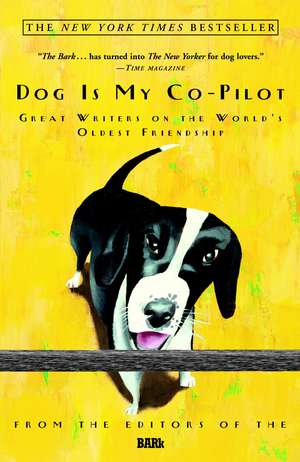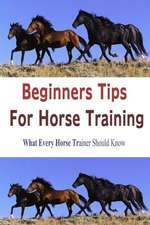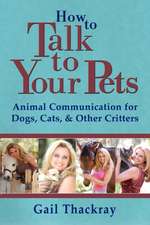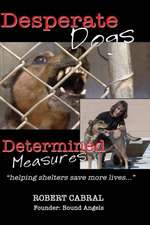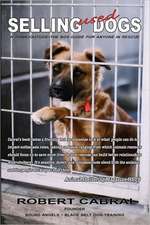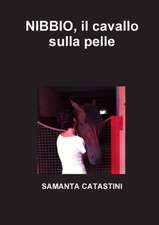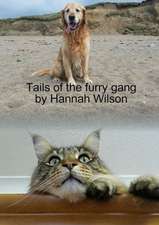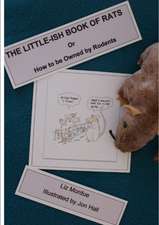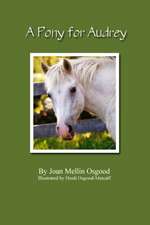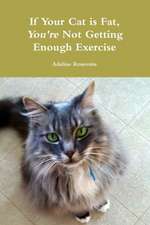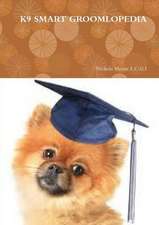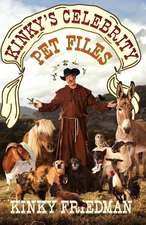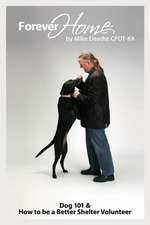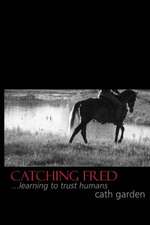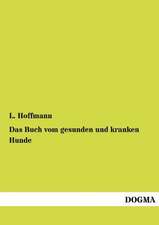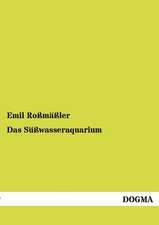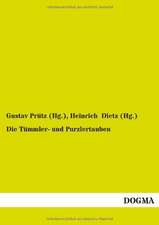Dog Is My Co-Pilot: Great Writers on the World's Oldest Friendship
Autor Bark Editors, Barken Limba Engleză Paperback – 30 sep 2004
The Bark began as a newsletter in Berkeley, California, that advocated for an off-leash area where dogs could cavort and play. Within a few years it had become a full-fledged, award-winning glossy magazine that published work by some of the best writers in America today. And as it grew, the magazine embraced a much larger canvas: to cover the emerging phenomenon of “dog culture” that has been developing over the past decade, as dogs have moved out of the backyard and into our homes, communities, and, indeed, the very center of our lives. As editor Claudia Kawczynska writes, “The implications of integrating another species into society’s daily fabric go well beyond how we nurture our dogs. It calls for a revamping of the standard etiquette—respecting the concerns and interests of society at large. This new relationship, along with an appreciation for our rich and unbounded future, comprises what we call dog culture. This is what The Bark set out to chronicle.”
Dog Is My Co-Pilot is an anthology of essays, short stories, and expert commentaries that explores every aspect of our life with dogs. Fifty percent of the material here has never been published before. The book is divided into four sections: Beginnings explores that first meeting, “the initial murmurings when a dog-human relationship is formed.” Pack investigates the theme of “togetherness” and pays tribute to the dynamic of multiple personalities in the canine-human relationship. Lessons examines what dogs teach us, from love to enlightenment. The final section, Passages, reflects on the themes of true friendship, transformation, and loss.
Included are pieces by Lynda Barry, Rick Bass, Maeve Brennan, Margaret Cho, Carolyn Chute, Alice Elliott Dark, Lama Surya Das, Pam Houston, Erica Jong, Tom Junod, Caroline Knapp, Donald McCaig, Nasdijj, Ann Patchett, Michael Paterniti, Charles Siebert, Alexandra Styron, Elizabeth Marshall Thomas, and Alice Walker. In selections that are humorous, poignant, truthful, sometimes surprising, and frequently uplifting, Dog Is My Co-Pilot embraces the full experience of the world’s oldest friendship. For people who love great writing and, yes, great dogs, it’s a book to be both shared and treasured.
Preț: 110.60 lei
Nou
Puncte Express: 166
Preț estimativ în valută:
21.16€ • 22.15$ • 17.61£
21.16€ • 22.15$ • 17.61£
Carte disponibilă
Livrare economică 10-24 martie
Preluare comenzi: 021 569.72.76
Specificații
ISBN-13: 9781400050536
ISBN-10: 1400050537
Pagini: 304
Ilustrații: 20 LINE DRAWINGS
Dimensiuni: 132 x 201 x 20 mm
Greutate: 0.32 kg
Editura: Crown Archetype
ISBN-10: 1400050537
Pagini: 304
Ilustrații: 20 LINE DRAWINGS
Dimensiuni: 132 x 201 x 20 mm
Greutate: 0.32 kg
Editura: Crown Archetype
Notă biografică
Claudia Kawczynska is editor in chief and Cameron Woo is the creative director of The Bark, which they cofounded in 1997. Recognized as one of the Most Notable Magazine Launches of 1999, The Bark has garnered numerous honors, including a Folio Gold Award and Best Alternative Press Award. The Bark is published out of Berkeley, California, where the editors live with their dogs Nellie, Callie, and Lenny, and cats Sammy, Hoagy, Bailey, Maggie, and Big Mama. Visit The Bark at www.thebark.com.
Extras
Crimes Against Dog
Alice Walker
For Wendy
My dog, Marley, was named after the late music shaman, Bob Marley. I never saw or heard him while he was alive, but once I heard his music, everything about him-his voice, his trancelike, holy dancing on stage, his leonine dreadlocks-went straight to my heart. He modeled such devotion to the well-being of humanity that his caring inspired the world; I felt a more sincere individual had probably never lived. Considering his whole life a prayer, and his singing the purest offering, I wanted to say his name every day with admiration and love. Marley has grown up on his music; Bob, leaning on his guitar in a large poster on my living room wall, is regularly pointed out to her as her Spirit Dad.
Marley was born December 19, 1995. She shares a birth sign, Sagittarius, with my mother and several friends and acquaintances. At times I feel surrounded by Sags and enjoy them very much; they are fun to be with, outspoken, passionate, and won't hesitate to try new things. They also like chicken. Marley has all these qualities, though I didn't know that the morning I drove out to the breeder to look at the litter of Labrador Retrievers I was told had arrived.
Crossing the Golden Gate Bridge, a friend and I joked about whether I was in fact ready to settle down enough to have a dog. Who would feed it when I was distracted by work? Where would it stay while I was away on book tours? Had I lined up a reliable vet? I had no idea what would happen. I only knew this friend was about to go away on a journey of unknown length. I would be unbearably lonely for her. I needed a companion on whom to lavish my overflowing, if at times distractible, affection. I needed a dog.
My first thoughts are always about enslavement on entering a place where animals are bred. Force. Captivity. I looked at the black and the chocolate Labs who were Marley's parents and felt sad for them. They looked healthy enough, but who knew whether, left to themselves, they would choose to have litter after litter of offspring? I wondered how painful it was to part with each litter. I spoke to both parents, let them sniff my hand. Take in the quality of my being. I asked permission to look at their young. The mother moved a little away from her brood, all crawling over her blindly feeling for a teat; the father actually looked rather proud. My friend joked about offering him a cigar.
I was proud of myself, too, standing there preparing to choose. In the old days of up to several months before, if I were going to choose an animal from a litter I would have been drawn to the one that seemed the most bumbling, the most clueless, the most un-amused. I saw a couple like that. But on this day, that old switch was not thrown: I realized I was sick of my attraction to the confused. My eyes moved on. They all looked much alike, to tell the truth. From a chocolate mother and a black father there were twelve puppies, six chocolate, six black. I'll never get over this. Why were there none with spots?
I asked the woman selling them, whom I tried not to have Slave Trader thoughts about. She shrugged. They never spot, she said. That's the nature of the purebred Lab.
Well, I thought. Mother. Once again doing it just any old way you like. Mother is my favorite name for Nature, God, All-ness.
I settled on a frisky black puppy who seemed to know where she was going-toward a plump middle teat!-and was small enough to fit into my hand. I sometimes wish I had chosen a chocolate puppy; in the Northern California summers the dust wouldn't show as much, but I think about this mostly when Marley rolls in the dirt in an effort to get cool.
After seven weeks I returned alone to pick her up, bereft that my friend had already gone on the road. It didn't feel right to pay money for a living being; I would have been happier working out some sort of exchange. I paid, though, and put Marley in my colorful African market basket before stroking the faces of her wistful-looking parents one last time. In the car, I placed the basket in the front seat next to me. I put on Bob Marley's Exodus CD and baby Marley and I sped away from Babylon.
We wound our way back through the winter countryside toward the Golden Gate Bridge and the bracing air of San Francisco. Before we had gone twenty miles, Marley, now about the size of my two fists, had climbed out of the basket and into my lap. From my lap she began journeying up my stomach to my chest. By the time we approached the bridge she'd discovered my dreadlocks and began climbing them. As we rolled into the city she had climbed all the way to the back of my neck and settled herself there between my neck and the headrest. Once there she snoozed.
Of the weeks of training I remember little. Dashing down three flights of stairs in the middle of the night to let her pee outside under the stars. Sitting on a cushion in the kitchen, before dawn, her precious black body in my lap, groggily caressing her after her morning feed. Walking with her zipped up in my parka around and around the park that was opposite our house. Crossing the Golden Gate Bridge on foot, her warm body snug in my arms as I swooned into the view. She grew.
Today she is seven years old and weighs almost ninety pounds. People we encounter on walks always ask whether she's pregnant. No, I reply, she's just fat. But is she really? No matter how carefully I feed her or how often I downsize her meals, she remains large and heavy. And she loves to eat so much that when her rations are diminished she begs, which I can't stand. This is one of those areas where we've had the most work to do. I've settled it lately by taking her off any slimming diet whatsoever and giving her enough food so that she seems satisfied. I did this after she was diagnosed with breast cancer, had surgery, and I realized I might lose her at any time. I did not want her last days to be spent looking pleadingly at me for an extra morsel of bread. To make up for giving her more food, I resolved to walk her more.
The friend who went away never really returned. Marley and I ceased expecting to see her after about the first year. Marley was an amazing comfort to me. What is it about dogs? I think what I most appreciate in Marley is how swiftly she forgives me. Anything. Was I cool and snooty when I got up this morning? Did I neglect to greet her when I came in from a disturbing movie? Was I a little short on the foodstuffs and did I forget to give her a cube of dried liver? Well. And what about that walk we didn't do and the swim we didn't take and why don't I play ball with her the way I did all last week? And who is this strange person you want me to go off with? It doesn't matter what it is, what crime against Dog I have committed, she always forgives me. She doesn't even appear to think about it. One minute she's noting my odd behavior, the next, if I make a move toward her, she's licking my hand. As if to say, Gosh, I'm so glad you're yourself again, and you're back!
Dogs understand something I was late learning: When we are mean to anyone or any being it is because we are temporarily not ourselves. We're somebody else inhabiting these bodies we think of as us. They recognize this. Ooops, I imagine Marley saying to herself, sniffing my anger, disappointment, or distraction. My mommy's not in there at the moment. I'll just wait until she gets back. I've begun to feel this way more than a little myself. Which is to say, Marley is teaching me how to be more self-forgiving. Sometimes I will say something that hurts a friend's feelings. I will be miserable and almost want to do away with myself. Then I'll think, But that wasn't really the you that protects and loves this friend so much you would never hurt them. That was a you that slipped in because you are sad and depressed about other things: the state of your love life, your health, or the fate of the planet. The you that loves your friend is back now. Welcome her home. Be gentle with her. Tell her you understand. Lick her hand.
The Color of Joy
Caroline Knapp
Imagine a scaled-down, delicately boned German Shep-herd dog, black and gray and tan instead of black and sable like a purebred, her face the color of ink with a faint gray mask. This is Lucille, a most ordinary-looking dog. She does have some exceptional features-her two forelegs are white, one halfway up from the paw, the other about a quarter of the way, which create the impression that she is wearing ladies' gloves; there is also the tiniest bit of white mixed into the fur at her chin, which makes her look vaguely like Ho Chi Minh if you catch her at the right angle. But for the most part, she is the kind of dog you might see pictured in the dictionary under mongrel or, if you happen to own a more politically correct edition, mixed breed. Unremarkable, in other words, but no matter. When you study a dog you love, you find beauty in every small detail, and so it is with Lucille: I have become enchanted by the small asymmetrical whorls of white fur on either side of her chest, and by her tail, which she carries in a high confident curve, and by her eyes, which are watchful and intelligent, the color of chestnuts. I am in love with the dog's belly, where the fur is fine and soft and tan, and I am charmed by her jet black toenails, which stand out against the white of her front paws as though they've been lacquered, and I am deeply admiring of her demeanor, which is elegant and focused and restrained. I seem to spend a great deal of time just staring at the dog, struck by how mysterious and beautiful she is to me and by how much my world has changed since she came along.
Before you get a dog, you can't quite imagine what living with one might be like; afterward, you can't imagine living any other way. Life without Lucille? Unfathomable, to contemplate how quiet and still my home would be, and how much less laughter there'd be, and how much less tenderness, and how unanchored I'd feel without her presence, the simple constancy of it. I once heard a woman who'd lost her dog say that she felt as though a color were suddenly missing from her world: The dog had introduced to her field of vision some previously unavailable hue, and without the dog, that color was gone. That seemed to capture the experience of loving a dog with eminent simplicity. I'd amend it only slightly and say that if we are open to what they have to give us, dogs can introduce us to several colors, with names like wildness and nurturance and trust and joy.
I am not sentimental about dogs, my passion for Lucille notwithstanding. I don't share the view, popular among some animal aficionados, that dogs are necessarily higher beings, that they represent a canine version of shamans, capable by virtue of their wild ancestry or nobility of offering humans a particular kind of wisdom or healing. I don't think that the world would be a better place if everyone owned a dog, and I don't think that all relationships between dogs and their owners are good, healthy, or enriching. "Dogs lead us into a kinder, gentler world." Honey Loring, a woman who runs a camp for dogs and their owners in Vermont, said this to me about a year after I got Lucille, a statement that struck me as rather flip. No: Dogs lead us into a world that is sometimes kind and gentle but that can be frightening, frustrating, and confusing, too. Dogs can be aggressive and stubborn and willful. They can be difficult to read and understand. They can (and do) evoke oceans of complicated feelings on the part of their owners, confusion and ambivalence about what it means to be responsible, forceful (or not), depended upon. They can push huge buttons, sometimes even more directly than humans can, because they're such unambiguous creatures, so in-your-face when it comes to expressing their own needs and drives: If you've got problems asserting authority, or insecurities about leadership, or fears about being either in or out of control, you're likely to get hit in the face with them from day one. In my view, dogs can be shamanistic, can be heroic and gentle and wise and enormously healing, but for the most part dogs are dogs, creatures governed by their own biological imperatives and codes of conduct, and we do both them and our relationships with them a disservice when we romanticize them. Writes Jean Schinto, author of The Literary Dog, "To deny dogs their nature is to do them great harm."
That said, I also believe that dogs can-and often do-lead us into a world that is qualitatively different from the world of people, a place that can transform us. Fall in love with a dog, and in many ways you enter a new orbit, a universe that features not just new colors but new rituals, new rules, a new way of experiencing attachment.
Everything shifts in this new orbit, sometimes subtly, sometimes dramatically. Walks are slower: You find yourself ambling up a city street instead of racing to a destination, the dog stopping to sniff every third leaf, every other twig, every bit of debris or detritus in your path. The clothes are different: Predog, I used to be very finicky and self-conscious about how I looked; now I schlepp around in the worst clothing-big heavy boots, baggy old sweaters, a hooded down parka from L.L. Bean that makes me look like an astronaut. The language is different, based on tone and nuance instead of vocabulary. Even the equipment is new and strange: You find yourself ordering unthinkable products from the Foster & Smith catalog (smoked pigs' ears, chicken-flavored toothpaste), and you find your living-room floor littered with sterilized beef bones and rawhide chips and plastic chew toys and ropes and balls, and you find your cupboards stocked with the oddest things-freeze-dried liver cubes, tick shampoo, poop bags.
Alice Walker
For Wendy
My dog, Marley, was named after the late music shaman, Bob Marley. I never saw or heard him while he was alive, but once I heard his music, everything about him-his voice, his trancelike, holy dancing on stage, his leonine dreadlocks-went straight to my heart. He modeled such devotion to the well-being of humanity that his caring inspired the world; I felt a more sincere individual had probably never lived. Considering his whole life a prayer, and his singing the purest offering, I wanted to say his name every day with admiration and love. Marley has grown up on his music; Bob, leaning on his guitar in a large poster on my living room wall, is regularly pointed out to her as her Spirit Dad.
Marley was born December 19, 1995. She shares a birth sign, Sagittarius, with my mother and several friends and acquaintances. At times I feel surrounded by Sags and enjoy them very much; they are fun to be with, outspoken, passionate, and won't hesitate to try new things. They also like chicken. Marley has all these qualities, though I didn't know that the morning I drove out to the breeder to look at the litter of Labrador Retrievers I was told had arrived.
Crossing the Golden Gate Bridge, a friend and I joked about whether I was in fact ready to settle down enough to have a dog. Who would feed it when I was distracted by work? Where would it stay while I was away on book tours? Had I lined up a reliable vet? I had no idea what would happen. I only knew this friend was about to go away on a journey of unknown length. I would be unbearably lonely for her. I needed a companion on whom to lavish my overflowing, if at times distractible, affection. I needed a dog.
My first thoughts are always about enslavement on entering a place where animals are bred. Force. Captivity. I looked at the black and the chocolate Labs who were Marley's parents and felt sad for them. They looked healthy enough, but who knew whether, left to themselves, they would choose to have litter after litter of offspring? I wondered how painful it was to part with each litter. I spoke to both parents, let them sniff my hand. Take in the quality of my being. I asked permission to look at their young. The mother moved a little away from her brood, all crawling over her blindly feeling for a teat; the father actually looked rather proud. My friend joked about offering him a cigar.
I was proud of myself, too, standing there preparing to choose. In the old days of up to several months before, if I were going to choose an animal from a litter I would have been drawn to the one that seemed the most bumbling, the most clueless, the most un-amused. I saw a couple like that. But on this day, that old switch was not thrown: I realized I was sick of my attraction to the confused. My eyes moved on. They all looked much alike, to tell the truth. From a chocolate mother and a black father there were twelve puppies, six chocolate, six black. I'll never get over this. Why were there none with spots?
I asked the woman selling them, whom I tried not to have Slave Trader thoughts about. She shrugged. They never spot, she said. That's the nature of the purebred Lab.
Well, I thought. Mother. Once again doing it just any old way you like. Mother is my favorite name for Nature, God, All-ness.
I settled on a frisky black puppy who seemed to know where she was going-toward a plump middle teat!-and was small enough to fit into my hand. I sometimes wish I had chosen a chocolate puppy; in the Northern California summers the dust wouldn't show as much, but I think about this mostly when Marley rolls in the dirt in an effort to get cool.
After seven weeks I returned alone to pick her up, bereft that my friend had already gone on the road. It didn't feel right to pay money for a living being; I would have been happier working out some sort of exchange. I paid, though, and put Marley in my colorful African market basket before stroking the faces of her wistful-looking parents one last time. In the car, I placed the basket in the front seat next to me. I put on Bob Marley's Exodus CD and baby Marley and I sped away from Babylon.
We wound our way back through the winter countryside toward the Golden Gate Bridge and the bracing air of San Francisco. Before we had gone twenty miles, Marley, now about the size of my two fists, had climbed out of the basket and into my lap. From my lap she began journeying up my stomach to my chest. By the time we approached the bridge she'd discovered my dreadlocks and began climbing them. As we rolled into the city she had climbed all the way to the back of my neck and settled herself there between my neck and the headrest. Once there she snoozed.
Of the weeks of training I remember little. Dashing down three flights of stairs in the middle of the night to let her pee outside under the stars. Sitting on a cushion in the kitchen, before dawn, her precious black body in my lap, groggily caressing her after her morning feed. Walking with her zipped up in my parka around and around the park that was opposite our house. Crossing the Golden Gate Bridge on foot, her warm body snug in my arms as I swooned into the view. She grew.
Today she is seven years old and weighs almost ninety pounds. People we encounter on walks always ask whether she's pregnant. No, I reply, she's just fat. But is she really? No matter how carefully I feed her or how often I downsize her meals, she remains large and heavy. And she loves to eat so much that when her rations are diminished she begs, which I can't stand. This is one of those areas where we've had the most work to do. I've settled it lately by taking her off any slimming diet whatsoever and giving her enough food so that she seems satisfied. I did this after she was diagnosed with breast cancer, had surgery, and I realized I might lose her at any time. I did not want her last days to be spent looking pleadingly at me for an extra morsel of bread. To make up for giving her more food, I resolved to walk her more.
The friend who went away never really returned. Marley and I ceased expecting to see her after about the first year. Marley was an amazing comfort to me. What is it about dogs? I think what I most appreciate in Marley is how swiftly she forgives me. Anything. Was I cool and snooty when I got up this morning? Did I neglect to greet her when I came in from a disturbing movie? Was I a little short on the foodstuffs and did I forget to give her a cube of dried liver? Well. And what about that walk we didn't do and the swim we didn't take and why don't I play ball with her the way I did all last week? And who is this strange person you want me to go off with? It doesn't matter what it is, what crime against Dog I have committed, she always forgives me. She doesn't even appear to think about it. One minute she's noting my odd behavior, the next, if I make a move toward her, she's licking my hand. As if to say, Gosh, I'm so glad you're yourself again, and you're back!
Dogs understand something I was late learning: When we are mean to anyone or any being it is because we are temporarily not ourselves. We're somebody else inhabiting these bodies we think of as us. They recognize this. Ooops, I imagine Marley saying to herself, sniffing my anger, disappointment, or distraction. My mommy's not in there at the moment. I'll just wait until she gets back. I've begun to feel this way more than a little myself. Which is to say, Marley is teaching me how to be more self-forgiving. Sometimes I will say something that hurts a friend's feelings. I will be miserable and almost want to do away with myself. Then I'll think, But that wasn't really the you that protects and loves this friend so much you would never hurt them. That was a you that slipped in because you are sad and depressed about other things: the state of your love life, your health, or the fate of the planet. The you that loves your friend is back now. Welcome her home. Be gentle with her. Tell her you understand. Lick her hand.
The Color of Joy
Caroline Knapp
Imagine a scaled-down, delicately boned German Shep-herd dog, black and gray and tan instead of black and sable like a purebred, her face the color of ink with a faint gray mask. This is Lucille, a most ordinary-looking dog. She does have some exceptional features-her two forelegs are white, one halfway up from the paw, the other about a quarter of the way, which create the impression that she is wearing ladies' gloves; there is also the tiniest bit of white mixed into the fur at her chin, which makes her look vaguely like Ho Chi Minh if you catch her at the right angle. But for the most part, she is the kind of dog you might see pictured in the dictionary under mongrel or, if you happen to own a more politically correct edition, mixed breed. Unremarkable, in other words, but no matter. When you study a dog you love, you find beauty in every small detail, and so it is with Lucille: I have become enchanted by the small asymmetrical whorls of white fur on either side of her chest, and by her tail, which she carries in a high confident curve, and by her eyes, which are watchful and intelligent, the color of chestnuts. I am in love with the dog's belly, where the fur is fine and soft and tan, and I am charmed by her jet black toenails, which stand out against the white of her front paws as though they've been lacquered, and I am deeply admiring of her demeanor, which is elegant and focused and restrained. I seem to spend a great deal of time just staring at the dog, struck by how mysterious and beautiful she is to me and by how much my world has changed since she came along.
Before you get a dog, you can't quite imagine what living with one might be like; afterward, you can't imagine living any other way. Life without Lucille? Unfathomable, to contemplate how quiet and still my home would be, and how much less laughter there'd be, and how much less tenderness, and how unanchored I'd feel without her presence, the simple constancy of it. I once heard a woman who'd lost her dog say that she felt as though a color were suddenly missing from her world: The dog had introduced to her field of vision some previously unavailable hue, and without the dog, that color was gone. That seemed to capture the experience of loving a dog with eminent simplicity. I'd amend it only slightly and say that if we are open to what they have to give us, dogs can introduce us to several colors, with names like wildness and nurturance and trust and joy.
I am not sentimental about dogs, my passion for Lucille notwithstanding. I don't share the view, popular among some animal aficionados, that dogs are necessarily higher beings, that they represent a canine version of shamans, capable by virtue of their wild ancestry or nobility of offering humans a particular kind of wisdom or healing. I don't think that the world would be a better place if everyone owned a dog, and I don't think that all relationships between dogs and their owners are good, healthy, or enriching. "Dogs lead us into a kinder, gentler world." Honey Loring, a woman who runs a camp for dogs and their owners in Vermont, said this to me about a year after I got Lucille, a statement that struck me as rather flip. No: Dogs lead us into a world that is sometimes kind and gentle but that can be frightening, frustrating, and confusing, too. Dogs can be aggressive and stubborn and willful. They can be difficult to read and understand. They can (and do) evoke oceans of complicated feelings on the part of their owners, confusion and ambivalence about what it means to be responsible, forceful (or not), depended upon. They can push huge buttons, sometimes even more directly than humans can, because they're such unambiguous creatures, so in-your-face when it comes to expressing their own needs and drives: If you've got problems asserting authority, or insecurities about leadership, or fears about being either in or out of control, you're likely to get hit in the face with them from day one. In my view, dogs can be shamanistic, can be heroic and gentle and wise and enormously healing, but for the most part dogs are dogs, creatures governed by their own biological imperatives and codes of conduct, and we do both them and our relationships with them a disservice when we romanticize them. Writes Jean Schinto, author of The Literary Dog, "To deny dogs their nature is to do them great harm."
That said, I also believe that dogs can-and often do-lead us into a world that is qualitatively different from the world of people, a place that can transform us. Fall in love with a dog, and in many ways you enter a new orbit, a universe that features not just new colors but new rituals, new rules, a new way of experiencing attachment.
Everything shifts in this new orbit, sometimes subtly, sometimes dramatically. Walks are slower: You find yourself ambling up a city street instead of racing to a destination, the dog stopping to sniff every third leaf, every other twig, every bit of debris or detritus in your path. The clothes are different: Predog, I used to be very finicky and self-conscious about how I looked; now I schlepp around in the worst clothing-big heavy boots, baggy old sweaters, a hooded down parka from L.L. Bean that makes me look like an astronaut. The language is different, based on tone and nuance instead of vocabulary. Even the equipment is new and strange: You find yourself ordering unthinkable products from the Foster & Smith catalog (smoked pigs' ears, chicken-flavored toothpaste), and you find your living-room floor littered with sterilized beef bones and rawhide chips and plastic chew toys and ropes and balls, and you find your cupboards stocked with the oddest things-freeze-dried liver cubes, tick shampoo, poop bags.
Descriere
The editors of "The Bark" newsletter present this anthology of essays, short stories, and expert commentaries exploring every aspect of human life with dogs and reflecting on the themes of true friendship, transformation, and loss. Includes pieces by Rick Bass, Erica Jong, Alice Walker, and others.
